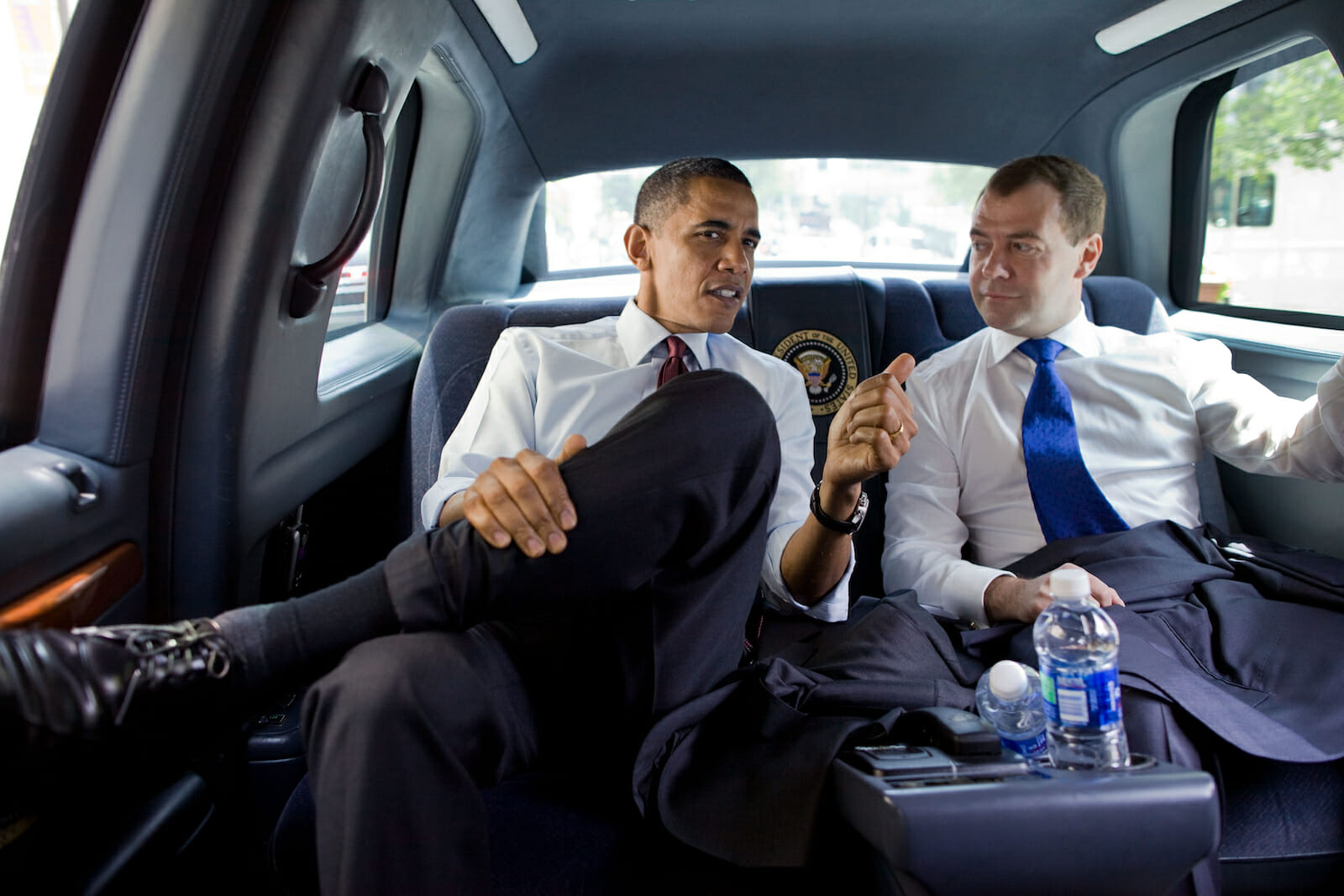
How to Enhance Obama’s Limited Progress on Arms Control
Upon assuming office, President Obama outlined his vision of a world free from nuclear weapons, calling the existing arsenals of nuclear weapons a dangerous legacy of the Cold War. Obama’s call for a nuclear weapons free world – what is also known as “Global Zero” – will be impossible to achieve in a world where nuclear proliferation is rampant, and where the benefits of Mutually Assured Destruction have been very effective in keeping the peace between nuclear armed states.
So, how far has Obama come towards achieving this goal during his first term in office? A notable success towards this goal was the signing in 2010 of the New START treaty, which binds Russia and the U.S. to a limit of 1,550 warheads each. Both nations also agreed to limit the number of launchers available to be used for these weapons. While this was clearly a step in the right direction, by itself, it is only enough to claim to have embarked on the path of a nuclear weapons free world, and it was achieved with some degree of difficulty between the two nations.
The New START treaty focused only on missile warheads yet there are many more tactical nuclear weapons that were not included in the disarmament talks. Tactical nuclear weapons are not ballistic missiles, but can include shells, gravity bombs, or even land mines designed for hypothetical use on a battlefield.
In an era of precision guided munitions there appears to be little need for tactical nuclear weapons, which have limited strategic utility and have been made redundant by advances in technology.
If Obama is to achieve greater progress towards Global Zero, the next logical step would be to focus on these weapons. To date, disarmament under the Obama Administration has been focused on bilateral talks with Russia. Any unilateral disarmament by the US would no doubt be deeply unpopular at home, and in a world where rogue states possess – or may soon possess – nuclear weapons, there would surely be resistance to changing America’s basic nuclear posture at this time. It is hard for strategists to agree on an ideal size for a nuclear arsenal to successfully deter an adversary, but there is also no doubt that America’s remaining nuclear arsenal is more than required to meet any imaginable defensive need. The US would surely remain able to deter any opponent with a far smaller arsenal.
The Obama Administration realizes that in order to hope to achieve more progress on the path to a Global Zero world, it must conduct talks with other nuclear powers, and will be holding a nuclear security summit later this year. The objective will be to discuss nuclear safety and the prevention of terrorist acquisition or theft of nuclear materials. There is no reason why multilateral talks should not be extended to include security issues beyond just terrorism and nuclear safety. If Obama is serious about achieving his objective, he should encourage more talks with a greater range of nuclear-armed powers. This could perhaps be done by reviewing the terms of the Non-Proliferation Treaty, and agreeing to engage in a regularized formal dialogue aimed at the reduction of nuclear weapons with all nuclear states.
Doing so would likely encourage countries like China to act as a respected and responsible partner at the nuclear table. China has so far been reluctant to embrace its position as a leading emerging military power – preferring instead to be thought of as ‘developing’ – and has also dismissed talk of any cooperation along the lines of a G2 with America. But nuclear security ought to be an issue that China sees as a field for collaboration with other global powers – if for no other reason than to try to exert more influence on North Korea. Also, the last thing China should want is to discourage arms control, as doing so may encourage some other of its neighbors to want to develop their own nuclear weapons programs in an effort to counter China’s inevitable rise.
If Obama is serious in achieving Global Zero in the nuclear arena, a serious multilateral approach is the key. The US needs to focus further on global co-operation concerning not just nuclear warheads, but the delivery systems attached to these weapons, tactical weapons, and the prevention of a terrorist acquisition of nuclear materials. Since 2009 there have only been incremental steps towards nuclear disarmament. Given the imminent prospect of greater nuclear proliferation in the Middle East, Mr. Obama needs to place more focus on this important objective he set for his Administration at the outset. If he is re-elected, it is our hope that this subject will receive the attention it deserves. If Mr. Romney is elected, that is unlikely to happen.

